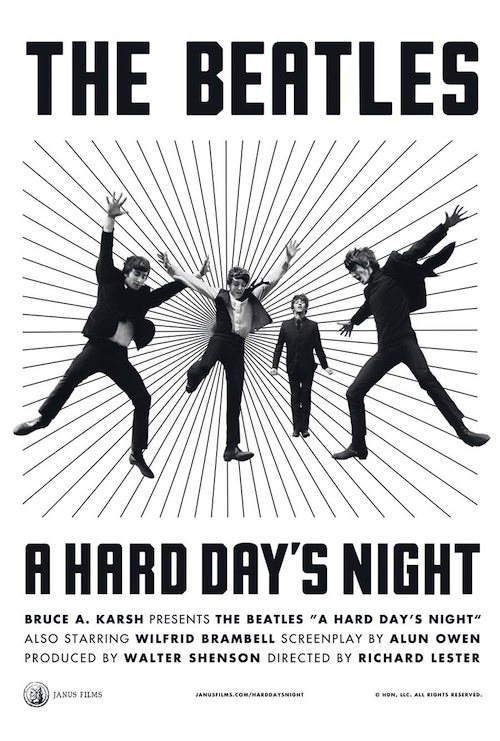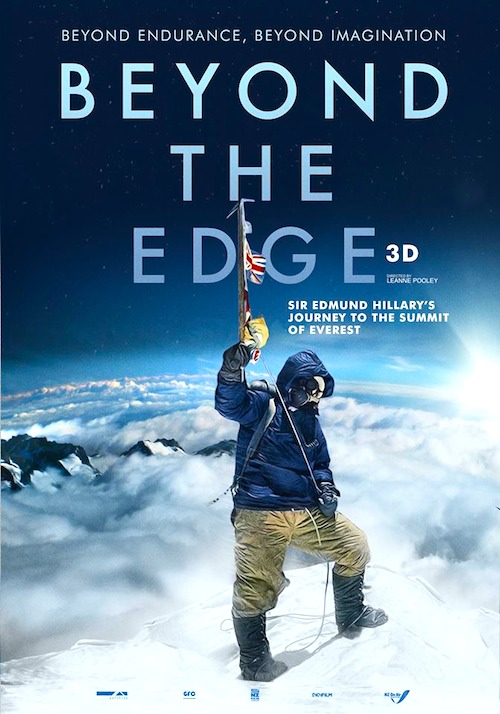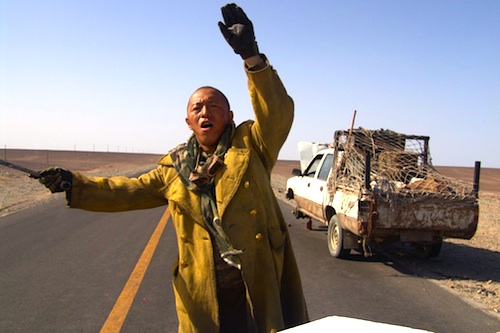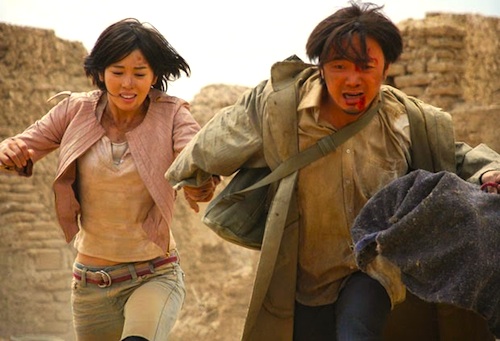By Joe Bendel. Oddly, nobody actually says the word “Beatles” in their first movie. It’s not like anyone needed to. It was clearly emblazoned across Ringo’s bass drum. Of course, just about everyone knew who they were. Beatlemania was already a full-fledged phenomenon that would be even further stoked with the initial release of Richard Lester’s A Hard Day’s Night. Digitally restored by Janus Films in time for its fiftieth anniversary, Lester’s iconic introduction to the band re-releases this Friday at New York’s Film Forum.
If you are still trying to figure out if the four lads from Liverpool were mods or rockers, you will not get a straight answer in AHDN, but that is all part of its charm. Instead, the Beatles just sort of be themselves as they gracefully deal with the challenges of superstardom, while trying to keep Paul’s grandfather out of trouble (his other grandfather). They run from hordes of screaming fans, play sound-checks, accidentally get arrested, and generally riff off each other. It is all still breezy fun fifty years later thanks to the wit and easy charm of Alun Owens’ screenplay and the Beatles themselves.
 Looking back at AHDN, it is remarkable how profoundly it shaped our perceptions of the Beatles’ personas: George is the cerebral one, John is the snarky one, Paul is a bit of a pushover, and Ringo is a goof. It also established a deceptively easy formula that has proved exceedingly difficult to emulate, as a host of meet the band box-office duds proved (Spice World, anyone?). To be fair, it is hard to compete with enduring original songs like the title smash hit, “All My Loving,” “And I Love Her,” “I Should Have Known Better,” and “She Loves You.”
Looking back at AHDN, it is remarkable how profoundly it shaped our perceptions of the Beatles’ personas: George is the cerebral one, John is the snarky one, Paul is a bit of a pushover, and Ringo is a goof. It also established a deceptively easy formula that has proved exceedingly difficult to emulate, as a host of meet the band box-office duds proved (Spice World, anyone?). To be fair, it is hard to compete with enduring original songs like the title smash hit, “All My Loving,” “And I Love Her,” “I Should Have Known Better,” and “She Loves You.”
Lester and the Fab Four also had a not-so-secret weapon in veteran comedic character actor Wilfrid Brambell, who was then nearly as recognizable as the Beatles from his leading role in the hit sitcom Steptoe and Son (remade in America as Sanford and Son). He has a way of mugging that seems rather dryly amusing. He also demonstrates perfect timing playing off the Lads. Likewise, Neil Aspinall and Mal Evans do a Mutt-and-Jeff routine as characters based on the Beatles’ personal assistant and road manager that nicely balances broad rubber-faced comedy with a kind of hyper-real sense of what it must have been like to ride the Beatles whirlwind.
AHDN provides a time-capsule of mid-1960s London, where you could buy milk from vending machines and television broadcasts involve transistors and dials. Yet, it still feels fresh and unspoiled. It is rather mind-boggling to suggest this, but AHDN would be a fine way for parents to introduce their children to the Beatles, because despite their mischievous inclinations, they essentially come across as good kids. More importantly, it is just funny in a good-hearted way and rocks (innocently and politely). It is a true classic that looks and sounds great after Janus’s careful 4K restoration. Highly recommended for any serious film lover, A Hard Day’s Night opens this Friday (7/4) at Film Forum.
LFM GRADE: A
Posted on July 1st, 2014 at 11:50pm.



